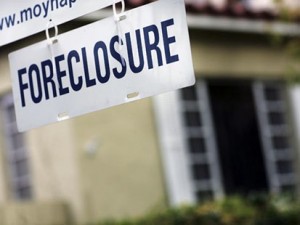February foreclosures in Chicago posted double-digit increases from a year ago, as banks resume filings in the wake of the $26 billion mortgage settlement, according to the latest data from RealtyTrac.
From January, February’s 12,587 foreclosure filings were actually down by 8.46 percent, but compared to February 2011, they were up by 43.23 percent, a huge increase that confirms earlier RealtyTrac projections that foreclosure filings would markedly increase in 2012.
Nationwide, total foreclosure filings, which includes default notices, scheduled auctions and bank repossessions, were reported on 206,900 properties (one in every 637), a decline of 2 percent from January and 8 percent from February 2011
The year-over-year decrease is the lowest since October 2010, and Brandon Moore, RealtyTrac’s CEO, said the numbers continue to point to a new period of foreclosures.
“February’s numbers point to a gradually rising foreclosure tide as some of the barriers that have been holding back foreclosures are removed,” Moore said. “Although national foreclosure activity was pushed lower by decreases in a handful of larger states, 21 states posted annual increases in foreclosure activity, the most states with annual increases since November 2010.”
Moore also pointed to the judicial aspects of foreclosures that continue to impact state-by-state results. From the mortgage settlement to state foreclosure procedures, he said the differences are apparent.
“The foreclosure and mortgage settlement filed in court earlier this week will help pave the way to a properly functioning foreclosure process by providing a clear roadmap for necessary foreclosures,” Moore said. “That should result in more states posting annual increases in the coming months. Not surprisingly, many of the biggest annual increases in February were in states with the more bureaucratic judicial foreclosure process, which resulted in a larger backlog of foreclosures built up over the last 18 months in those states.”
For the 26 states with judicial foreclosure processes (like Miami and Illinois), filings increased 2 percent from January and were up 24 percent from February 2011; activity in the 24 non-judicial states was down 5 percent from January and 23 percent from February 2011.
Statistics were similarly divergent based on the type of foreclosure. Default notices, which were filed for the first time on 58,886 properties in February, were up 1 percent from January but down 7 percent from February 2011, and they increased at by at least 20 percent year-over-year in 12 states, including a 321 percent increase in Hawaii and a 157 percent increase in Maryland.
Foreclosure auctions, which were scheduled on 84,180 new properties, were down 2 percent monthly and 13 percent yearly, but again, certain states posted big year-over-year increases. 13, in fact, had increases of at least 25 percent, including Kentucky with a 190 percent increase and Illinois with 170 percent.
And finally, 63,834 properties entered REO status in February, a 4 percent monthly decline and 1 percent decline from February last year. In 17 states, REO activity was up by at least 20 percent, in states such as Massachusetts (114 percent increase), Florida (90 percent increase) and Illinois (42 percent increase).
Though those numbers are big and scary, a recent Wall Street Journal article highlighted an optimistic element to such developments. Citing recent data from LPS, the article stated that in ramping up foreclosure proceedings, banks are working through old inventory and clearing the way not only for an increase in home values, but a housing recovery, as well.
“We’ve been waiting for a sign that the foreclosure pipeline is beginning to clear,” said Mitch Cohen, an LPS spokesman, in the article. “This is pre-AG settlement movement. And it’s the biggest movement since the fall of 2010.”
